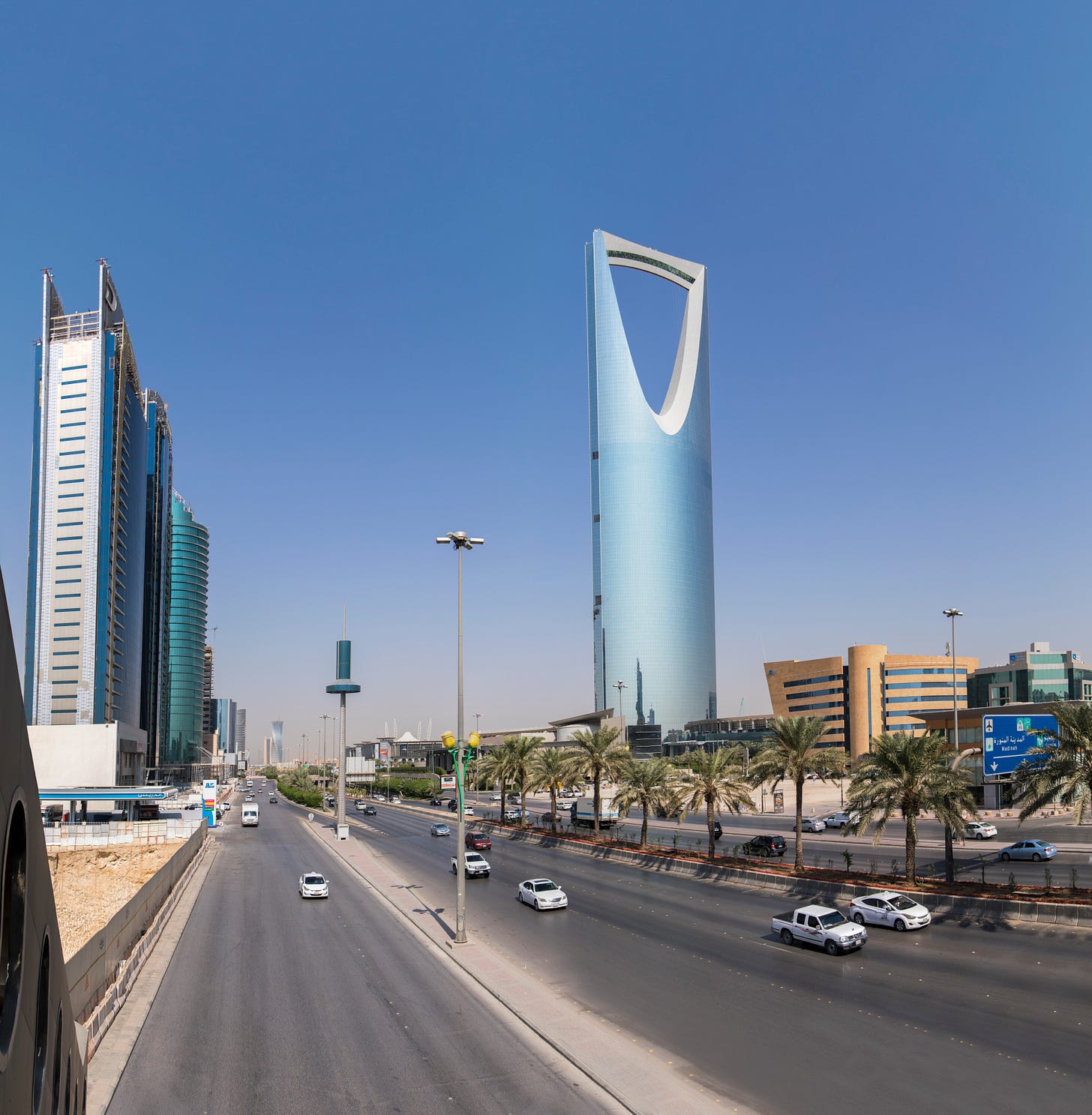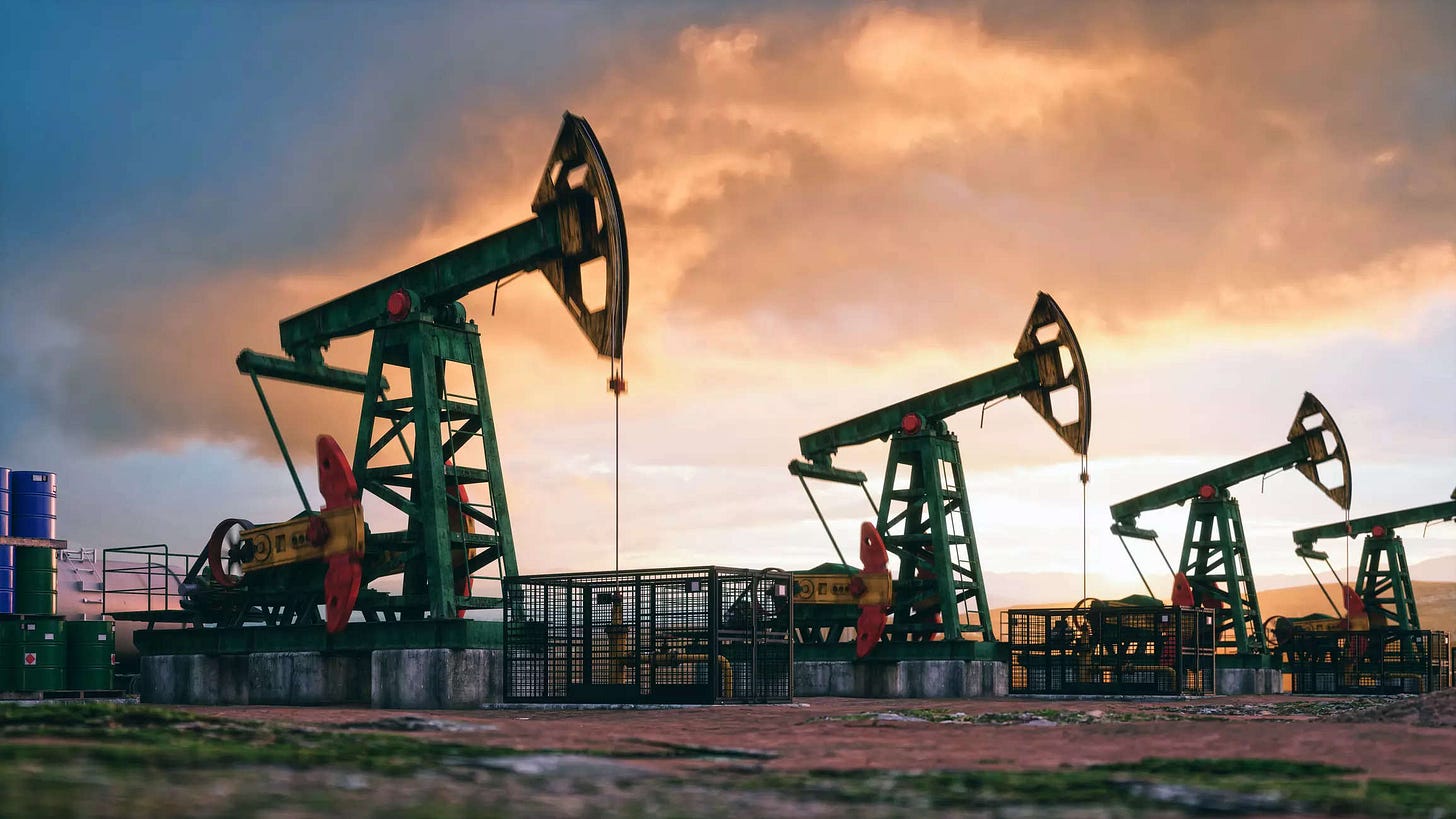Emerging Markets Monitor - July 31
Asia Economies Falter: IMF, Saudi Economy Sizzles, Falling Food Prices Ease Inflation Woes, Brazil's Lula Leads in Polls, New Oil and Gas Finds Boost Algeria
The Top 5 Stories Shaping Emerging Markets from Global Media - July 31
Asia’s Economies Face Weakening Growth, Rising Inflation
IMF Blog
“The global economic outlook has darkened, and growth across Asia and the Pacific is poised to slow further amid the continuing impact of Russia’s invasion of Ukraine and other shocks.”
“Economic growth in Asia and the Pacific is projected to decelerate to 4.2 percent this year, 0.7 percentage points less than we forecasted in April and slower than the 6.5 percent growth in 2021. We lowered our 2023 forecast to 4.6 percent, down by 0.5 percentage points.”
“Risks that we highlighted in our April forecast—including tightening financial conditions associated with rising central bank interest rates in the United States and commodity prices surging because of the war in Ukraine—are materializing. That in turn is compounding the regional growth spillovers from China’s slowdown.”
“China, Asia’s largest economy, saw a significant deceleration in the second quarter as the zero-COVID policy prompted lockdowns for major cities and supply-chain hubs. Accordingly, our full-year growth forecast is lowered to 3.3 percent from 4.4 percent in April, and we expect 4.6 percent growth next year, a reduction of 0.5 percentage points.”
“Such a decline in activity, which also reflects a prolonged and intensifying slump in the real estate sector, is likely to have sizeable spillovers on regional trading partners. Japan and Korea, the two largest regional economies integrated closely with global supply chains and China, will also see growth slow on weaker external demand and disruptions to supply chains.”
“But despite China’s recent slowdown, signs of a rebound in economic activity are emerging as some pandemic restrictions on mobility are now being gradually eased. The resilience of manufacturing and rebound in tourism is supporting a gradual rebound in Malaysia, Thailand and the Pacific island countries.” Krishna Srinivasan writes.
Saudi Economy Grows at Fastest Pace Since 2011
Bloomberg
“Saudi Arabia’s economy expanded 11.8% in the second quarter, maintaining the fastest pace of growth since 2011 buoyed by higher oil prices and production.”
“Non-oil gross domestic product -- the engine of job creation -- gained 5.4% while the oil economy grew 23.1% compared to last year, according to preliminary estimates released by the General Authority for Statistics on Sunday.”
“The increase in energy prices together with the war in Ukraine, which altered the global patterns on trade, production and consumption, have contributed to this record GDP growth. Oil is trading more than 40% higher than at the start of the year, and surged further immediately after Russia’s invasion of Ukraine.”
“Saudi Arabia has seen revenue soar on the back of $100 oil and rising production. Oil gross domestic product is expected to grow 19% this year, Saudi Finance Minister Mohammed Al-Jadaan said at the World Economic Forum in Davos, Switzerland.” Bloomberg reports.
Falling Food Prices Ease Inflation Concerns
Wall Street Journal
“Falling prices for commodities such as wheat or corn are set to slow consumer food price increases, easing pressure on a major driver of global inflation.”
“But economists warn it is too soon to declare victory. Agricultural markets remain volatile and the continuing war in Ukraine, combined with unusually hot and dry weather in Europe and parts of the U.S., could bring new disruptions to food supplies.”
“‘We’ll see certainly in the short run adjustments in prices,’ said Rob Vos, an economist at the International Food Policy Research Institute. ‘I would be very cautious in making big projections that things are stabilizing and getting better because we still are in a pretty difficult and tight situation.’”
“Supply problems caused by the Covid-19 pandemic sent the price of food soaring last year. Russia’s invasion of Ukraine in February of this year added additional pressure. The two countries combined accounted for 28% of global wheat exports last year and 15% of corn exports. Russia is also a major exporter of agricultural fertilizer, and Ukraine leads the world in sunflower oil exports.”
“The onset of the war pushed up global food prices by 13% in March from the previous month, according to the United Nations’ Food and Agriculture Organization.” David Harrison reports.
Brazil’s Lula Maintains Big Lead Over Bolsonaro Ahead of Election
Reuters
“Former Brazilian President Luiz Inacio Lula da Silva's lead over incumbent far-right President Jair Bolsonaro slipped one percentage point from 19 to 18 points ahead of the Oct. 2 election, a survey by pollster Datafolha showed on Thursday.”
“The leftist leader drew 47% voter support in the poll against Bolsonaro's 29%, compared with 47% and 28%, respectively, in June. If the vote were held today, Lula would win the election outright with 53% of the valid votes, avoiding a second-round runoff required if no candidate gets more than 50% of the unspoiled ballots, the pollster said.”
“If there is a run-off, which would be held on Oct. 30, Lula would be returned to office with 55% of the votes against 35% for Bolsonaro, a 20-point advantage that has been slipping from the 29 points lead he had in December, the poll said.” Reuters reports.
New Oil and Gas Discoveries Boost Algeria
African Business
“Algeria’s state-owned oil company Sonatrach has announced three major oil and gas discoveries in the Sahara desert.”
“Since the outbreak of the war in Ukraine, and the need for Europe to end its energy dependency on Russia, Algeria has been intensively drilling to increase its production of oil and gas.”
“The first discovery is a gas condensate located in two different reservoirs which were found following the drilling of an exploration well in the Illizi Basin, located at the border with Libya.”
“According to the company, the flow rates recorded by the two reservoirs amounted to 513,000 cubic metres/day of gas during the test phase.”
“Another discovery of crude oil was made in partnership with Italian oil company Eni in the northern region of the Berkine Basin. ‘During the production test, the well produced 1,300 barrels/day of oil and 51,000 cm/day of associated gas,’ said Sonatrach.”
“The two discoveries are located close to existing oil and gas facilities. Significant gas production was also attained during the test of the formation of one reservoir in Bechar Basin, confirming ‘a gas potential in this untested reservoir and a region considered as an emerging area,’ said Sonatrach.” Leo Komminoth reports.
“It is never too late to be what you might have been.”
― George Eliot
ICYMI - Afshin Molavi’s column on HSBC and Globalization







